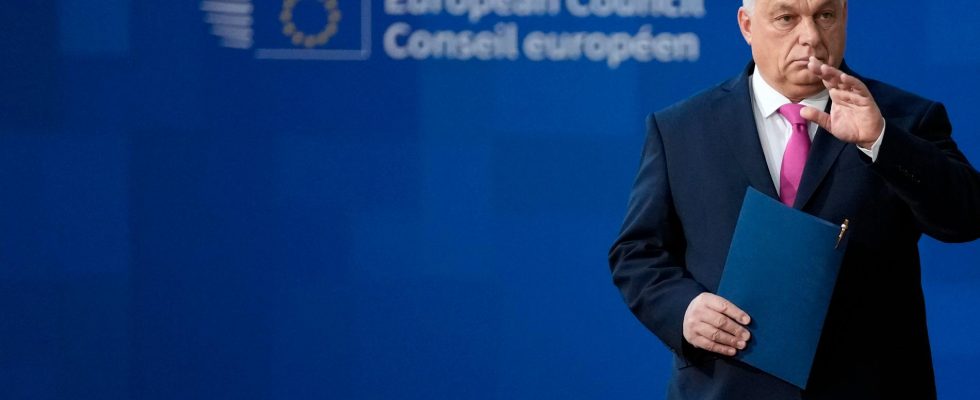Viktor Orbán has often been at odds with other EU leaders – but the drama has never been greater than at this week’s summit in Brussels.
After the Hungarian Prime Minister’s blocking of billions in aid to Ukraine, a new summit is now required at the beginning of 2024. The colleagues in the rest of the EU are not satisfied.
At first, Orbán refused to approve the start of membership negotiations with Ukraine and Moldova, but resolved the situation by simply walking out when the other leaders made their decision.
A unique solution, which, according to the Dutch journalist and author Jan Werts, has never happened before – at least not during the 48 years that he has covered and written about EU summits.
However, Orbán did not use the same benevolence when it came to money later in the night. Then there was a double veto for both Ukraine support and the extended long-term budget proposed by the European Commission.
The summit drama in Brussels puts the relationship crisis between Hungary and the rest of the EU in a flash.
Want money
Now a new summit is required at the beginning of 2024 to try to resolve the financial issue. Before that, Hungary is clear that they want the rest of the EU to say yes to releasing the billions in EU aid that have been frozen due to concerns about corruption and the development of the rule of law in Hungary.
– This is an excellent opportunity for Hungary to make it clear that it should get what it deserves. Not half or a quarter but all. We want to be treated fairly and now there is a good chance that we can arrange it, Orbán said on Hungarian radio on Friday, according to the AFP news agency.
But getting the rest of the EU on board won’t be easy. The irritation is at a record high and since Poland switched to a significantly more EU-friendly government, under the leadership of former Council President Donald Tusk, Hungary no longer has any given backer among the other countries.
Risking his vote
It gives the rest of the EU the opportunity to proceed seriously with its so-called Article 7 process regarding Hungary’s rule of law and democratic development. In order to fine Hungary or, in the worst case, remove the country’s right to vote, full agreement is required among the other countries – something that is currently no longer seen as an impossibility.
Possibly, that threat could also put pressure on Hungary to take some steps back in the fight. Irish Prime Minister Leo Varadkar is one of many who hope that a little reflection will help to get Hungary to also say yes to the Ukraine aid.
– A little time and space over the Christmas weekend might help, he thinks.
FACT EU Article 7 process
In Article 7 of the EU’s Lisbon Treaty, it is determined that a majority in the EU Commission, the EU Parliament or among the member states can initiate a special procedure when a member state is considered to be disregarding fundamental EU values such as “respect for human dignity, freedom, democracy, equality, the rule of law and respect for human rights, including the rights of persons belonging to minorities’.
The process takes place in several stages where hearings and recommendations are mixed with formal decisions. If you go so far as to determine that an EU country really disregards the values, all other EU countries must vote in favor. Any sanctions that may then be introduced – for example temporarily withdrawing the country’s right to vote in the EU context – must also be done unanimously.
So far, Article 7 proceedings have only been initiated against Poland (since 2017) and Hungary (since 2018). So far, however, none of the processes has reached even a vote on whether there is a clear risk of the values being overridden.
Read more
